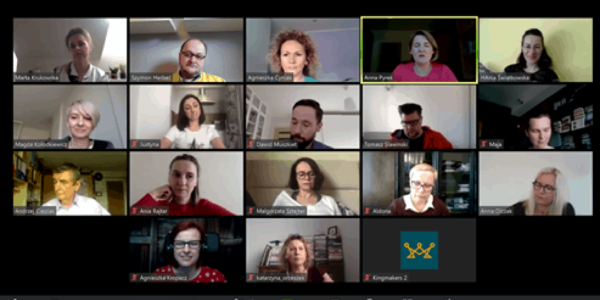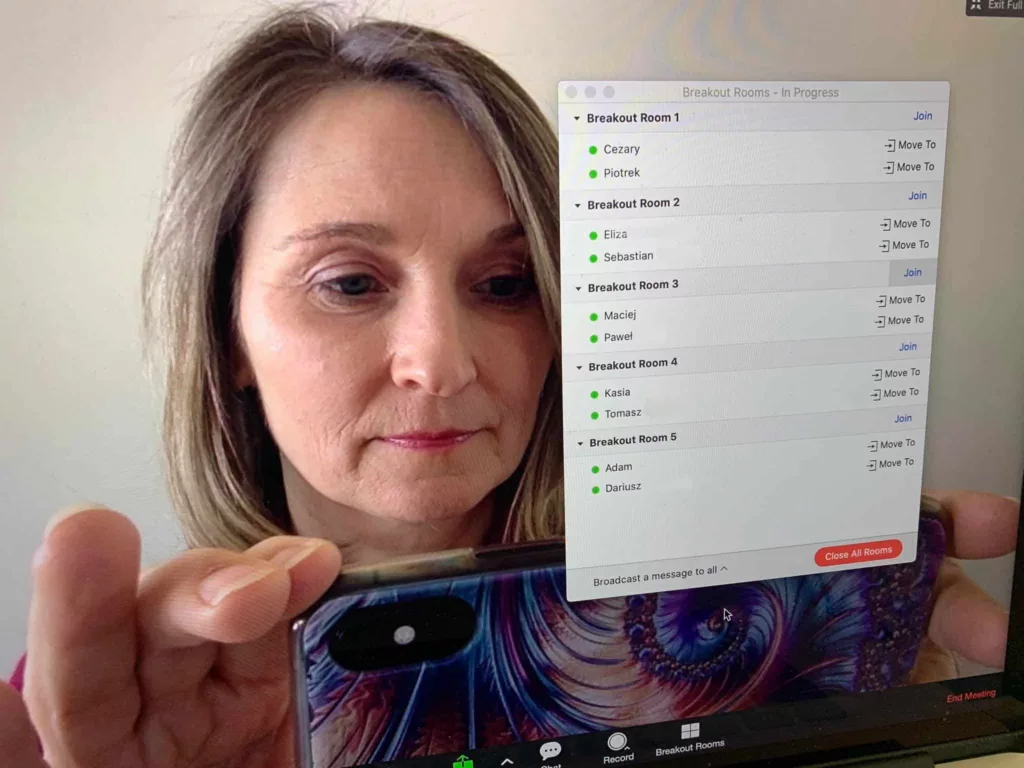Already returning from my vacation in Switzerland, I knew that nothing would be the same. The previously reliable Swiss airline canceled our flight and then became unavailable for several dozen hours. In desperation, we bought a ticket for another flight on Sunday, and then another for Saturday (on the news of the Saturday-Sunday night traffic closure). Upon landing, we were greeted on the plane by soldiers of the Territorial Defense Forces measuring our foreheads with thermometers.
The media is immersed in statistics about the virus and all kinds of advice.
On the other hand, remote work is coming to the fore in professional social media. How to switch? How to “get in the game as soon as possible”? All of us who had hitherto disregarded online platforms or had incidental contact with them suddenly craved much greater intimacy. The increase in the number of users of these platforms must be exponential, which some of them are already strongly feeling by reducing their capacity significantly. Just yesterday we spoke with a client who is experiencing this directly, because practically overnight the communication platform they were using, which was working, became as sluggish as a hippopotamus after a hearty dinner, complete with a double dessert.

What about us? During the one week I was out of the country, Kingmakers became a remote company.
We all have a “home-office.” This forced transformation took place surprisingly lightly and smoothly. Our previous use of platforms to work remotely with clients and each other has paid off. The structure of short briefings at the beginning and end of the day and the fact that we support each other all the time helps. The benefits of such meetings are enormous in relation to the time invested in them. First: mobilization. No one sleeps until noon and stays up all night watching series on Netflix (I guess ;)). What we do is productive and has a concrete business dimension (we learn, sell, create, deliver). Second: integration. We have a chance to share how someone feels and what they need. We know that we are not alone in all this. If necessary, we improve each other’s mood and get to know each other more and more. Third: cooperation. We determine who is doing what, what are the current projects and what activities are required. We share tasks, ideas, help each other.

First: mobilization. Second: integration. Third: cooperation.
The whole situation has released a lot of our energy and creativity. We are doing things that we had already thought worthwhile, but had been putting off while pursuing current projects. Clients are offered online implementations not only for coaching or mentoring, but also for leadership training. Reactions vary. Some people struggle with their own technical and operational problems and postpone development by postponing training until further notice. However, most are curious about the offer of remote training and inquire about what idea we have for their implementation, so that they are not just “talking heads” and passive recipients who yawn and die of boredom in front of their screens.
And how do we do it? We use the possibilities of communication platforms to engage participants. They are invited to practice, discuss, reflect – just as they would during a classroom training. In our case, “remotely” does not mean “passively,” quite the opposite. We focus on interactivity. If you want to know more contact us .